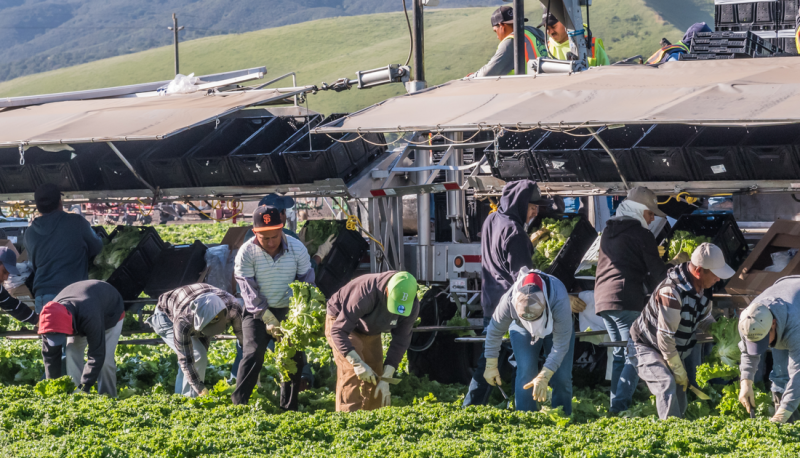During this unprecedented emergency, People for the American Way has continued to work to safeguard vulnerable communities. We are pushing our lawmakers for solutions to address these inequities, and to help our members stay aware and up-to-date, we are sharing emerging news and data on the blog every week to highlight how our vulnerable communities are suffering and offer resources on how to get involved in our work to protect them. Read our previous post here.
Today, we’re covering the impact on immigrants in the U.S. and the complex challenges they are facing amid this global health crisis.
From the farmworkers who harvest our food, to the dedicated people who care for our loved ones, to the countless hardworking people who fulfill so many other essential roles, immigrants contribute significantly to our society in meaningful ways and pay billions of dollars in federal taxes every year. Right now, thousands of immigrants are working on the front lines to meet our basic needs – and they will play an equally essential role in driving our country’s recovery. Yet undocumented immigrants in the U.S. are not covered in the first rounds of federal relief packages, compounding the threats to their health and economic safety.
Immigrants are more likely to be uninsured – and especially in the wake of Trump’s assault on immigrants who use Medicaid, they are more likely to avoid seeking medical care. Right now, these barriers to care make them even more vulnerable to the coronavirus. And whether immigrants are showing up to work in essential roles or have lost income and hours amid unprecedented layoffs, furloughs and pay cuts, too many of them are left wondering how they can stay healthy and safe and support their families.
Immigrant farmworkers are still largely in the fields to grow and harvest fresh produce and keep our grocery stores stocked. And like grocery store workers, they endure long hours in crowded conditions without access to personal protective equipment (PPE). To top it off, federal and state health departments are only sometimes offering critical public health information in Spanish.
COVID-19 outbreaks are spreading in immigrant detention centers, where conditions before this pandemic were already grim. After mass public pressure, Immigration and Customs Enforcement (ICE) began to release immigrants earlier this week “on a case-by-case basis,” but the majority of the more than 32,000 people who are detained by ICE are forced to endure unsanitary conditions and overcrowding, even after those conditions have proven fatal.
Thousands of working Deferred Action for Childhood Arrivals (DACA) recipients and Temporary Protected Status (TPS) recipients are also experiencing high levels of fear and uncertainty over their status. An estimated 700,000 thousand people in the U.S. are DACA recipients. Many of them right now are facing new challenges as they try to renew their DACA protections and work permits before the Supreme Court decides on the future of the program. They have a legal right to pursue their education, access health care, and support their families during this crisis, and Congress should automatically extend work permits to protect this segment of the immigrant community.
The impact of these issues is wide-ranging. For example, the cancellation of citizenship oath ceremonies and in-person interviews threatens to slow the processing of naturalization. The closure of the United States Citizenship and Immigration Services (USCIS) office on March 16 left behind an estimated 400,000 people who had already completed all citizenship requirements and were on the cusp of becoming citizens. Without remote options available, they are forced to wait – and risk losing access to their first civic act as citizens: voting in the November elections.
The cost of this pandemic to immigrants’ health, safety and wellbeing is simply too great. We must stand with the immigrant community amid this crisis. That means calling upon Congress to provide direct cash assistance to all tax-paying immigrants, regardless of status – not just during the pandemic, but for the duration of this economic recession. It means fighting for adequate protections against unjust deportation, and for accessible health care, including free testing. It’s time to reaffirm our commitment to justice for all.
